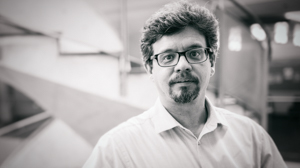

What is it like to be a gay female police officer? What unique challenges and attitudes do those women face in their life on the force? Are those attitudes changing?
These are questions University of Guelph-Humber Justice Studies instructor Joe Couto hopes to explore with his newly launched, UofGH-funded research project, “Gay. Female. Cop. The intersectionality of Gender and Sexual Orientation in Police Culture.”
It’s not Couto’s first foray into researching the experiences and challenges faced by LGBTQ police officers in Canada; he completed a thesis on the topic for Royal Roads University in 2014. Couto, however, has found already that by focusing on the lived experience of gay female police officers specifically, he’s receiving much different responses.
“There’s an intersectionality between the gender and the sexual orientation of these officers. Because policing is traditionally masculine and heterosexual, the experiences of these officers are unique and different from their male counterparts,” Couto said.
“These are officers who don’t get to talk a lot about their experiences. My job is to give them opportunities to talk about gender and sexual orientation, as well as where they’ve been, where they are, and where they’re going in the future.”
Couto is being assisted in his research by two University of Guelph-Humber students. Third-year student Neve Taylor said she was eager to help not only because it was a unique opportunity to build valuable research experience that can be rare for an undergraduate student, but also because she saw a chance to explore several important issues at once.
“I’ve taken several courses that have touched on either gender issues, LGBTQ issues, or intersectionality, but seldom are these issues discussed at one time,” Taylor said. “I saw this specific opportunity as a rich, hands-on experience where I could work to investigate a very dynamic, current, and often overlooked issue.”
Couto has a long history advocating for equality in policing. A senior staffer with the Ontario Association of Chiefs of Police (OACP) for 13 years, Couto has been brought in by the association as well as individual police organizations such as the Royal Canadian Mounted Police, York Regional Police, and Thunder Bay Police Service to speak to officers and leadership about the issues facing LGBTQ police officers.
Thankfully, he has noticed positive changes.
“I’m really happy that a lot of the services have moved towards having diversity and inclusion units,” Couto said. “There are a lot more support networks now for LGBTQ officers.”
At UofGH, Couto hopes to instill some of these same values in his students as they prepare for long careers in law enforcement.
“That’s why I teach here – that’s why I teach, period,” he said. “I want my students to be thinkers and community-dedicated officers and professionals wherever their careers lead them.
“I like to think I’m part of what Guelph-Humber does, which is build the new police officers and justice personnel. We are producing new critical thinkers who will have a long-lasting impact on the future of policing and the justice system as a whole.”





